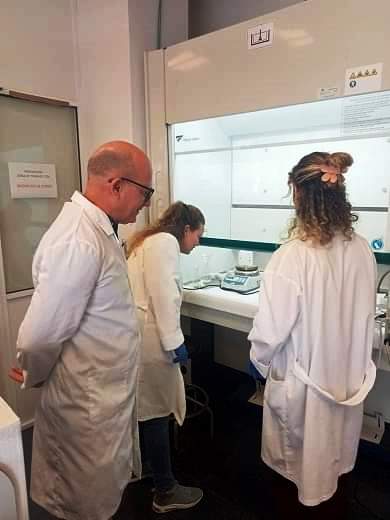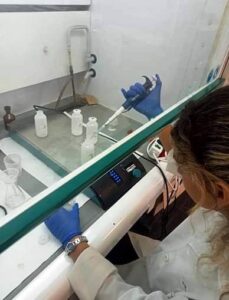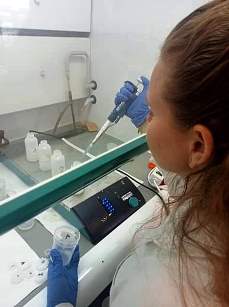Matanzas women researchers end their stay in Spain with successes in sustainability.

Their studies were based on the extraction of silica from rice husk ash, an abundant resource that is generally wasted.

Two young researchers from the Indio Hatuey Experimental Station of Pastures and Forages, belonging to the University of Matanzas, have closed a significant chapter in their academic and professional training.
Dianet Camejo Rodríguez and Milianys Pérez Reyes finished their research stay at the Pablo de Olavide University, in Seville, Spain, an experience that is part of the VALZEO Project, which seeks the valorization of agro-industrial waste to create zeolite-based composite materials, with applications in environmental remediation and biofuel production.
During their stay, the Matanzas researchers worked with Dr. Rabdel Ruiz Salvador and his team in the Department of Physical, Chemical and Natural Systems. Their studies, according to the Experimental Station’s Facebook page, were based on the extraction of silica from rice husk ash, an abundant resource that is generally wasted. This process not only contributes to sustainability by reducing waste, but also enables the synthesis of multifunctional composite materials.


According to the results, these new materials have the potential to be used as heterogeneous catalysts in the production of biodiesel, which represents a significant advance towards cleaner energies.
The VALZEO Project not only focuses on scientific development, but also promotes a valuable exchange between researchers. International collaborations are essential for the growth of knowledge and innovation, and through such projects, best practices are generated and ideas are shared that can transform the approach to sustainability.
Written by Gabriel Torres.




